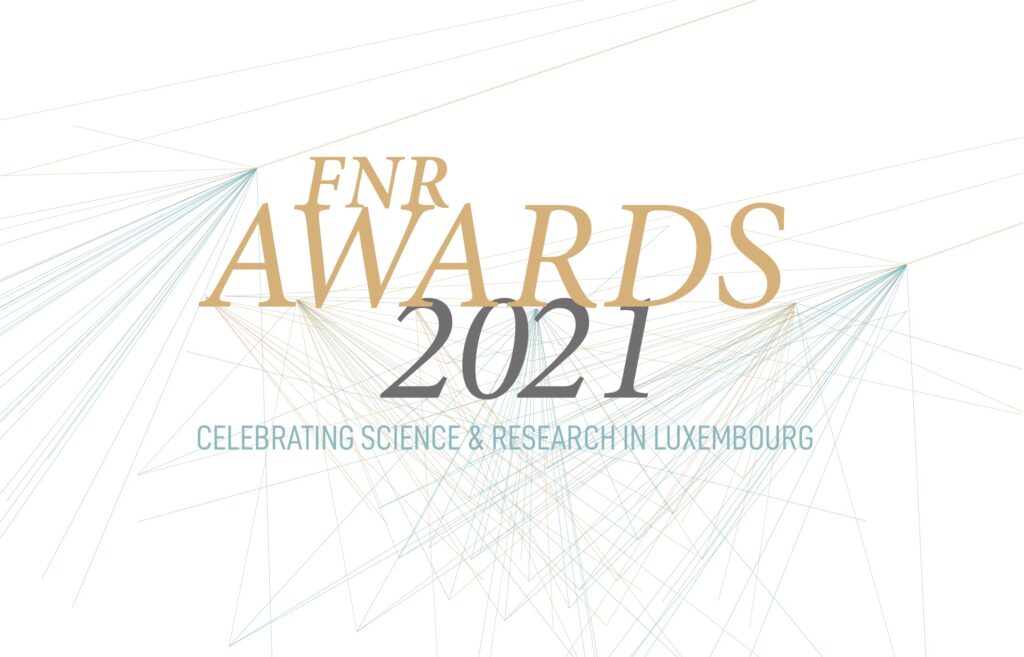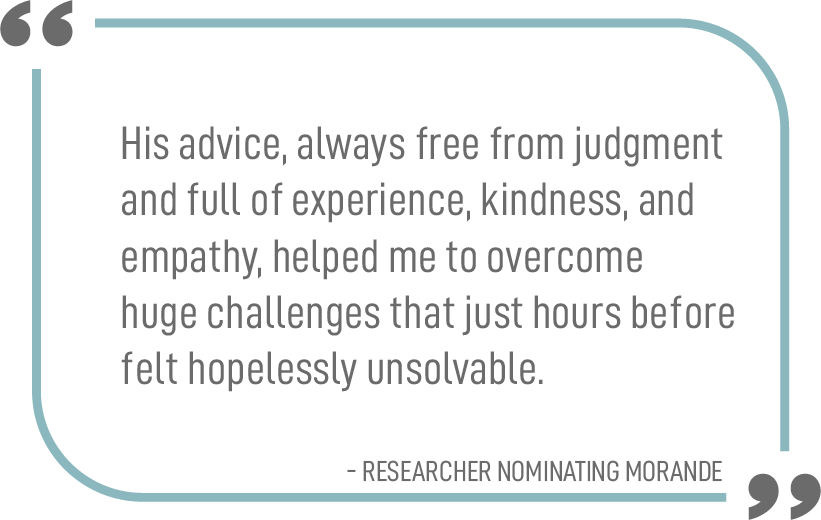BACK TO RESEARCH WITH IMPACT: FNR HIGHLIGHTS
Mentorship is essential for driving research and helping the next generation of scientists to become independent researchers. Through the new FNR Award for Outstanding Mentor, the FNR wants to recognise outstanding mentorship and reward this important but sometimes unappreciated element of research. We introduce the new category and the 2021 awardees.
“The mentor is a model of humanity, kindness and generosity, with the modesty and humbleness that characterises the great team leaders” says one of the scientists behind a nomination for one of the first recipients of an FNR Award for Outstanding Mentor. Another wrote “my academic life has never been as positively impacted as by this mentor”.
Good mentorship goes beyond professional development, shaping individual scientists, impacting scientific careers, as well as passing along positive research values such as research integrity, scientific credibility and fostering a diverse and inclusive research environment. The statements above and below are testament to this.
The FNR received a whopping number of applications for the Outstanding Mentor categories – rivalling submissions in all other categories and underlining just how important this category is to the people in Luxembourg’s research environment. Good mentorship is a key element of research culture. Most of the applications were sent without the mentor’s prior knowledge – nominated by the people around them – and it was also clear that great mentors are not only found in group leaders’, but often also in postdocs.
The details of why these mentors were submitted for an award are varied, but a common thread is found: the mentors submitted for an award go above and beyond to help and guide.
The 2021 awardees
Andreas Fickers is the Director of the Luxembourg Centre for Contemporary and Digital History (C2DH), University of Luxembourg.

Photo taken at the 2021 FNR Awards [Olivier Minaire]
“I wish to stress how deeply his advice and my discussions with him shaped my profile as a researcher today. He always offered advice, supported my academic curiosity, challenged my positions, and never imposed his vision on my work. In my mind, the most striking feature of his mentorship has been the way he has treated me as an equal from the beginning. By treating me as a peer, Prof. Fickers gave me – and many others – formidable confidence to grow as historians, something particularly valuable for early-career researchers,” said one of Prof Fickers former PhD students in his nomination.
Another wrote: “Whoever meets him will remember his respectful and friendly character. Despite being a noteworthy scholar in a prestigious position, he never displayed arrogance or let the hierarchical power contaminate his open spirit.”
Fickers was not aware of the nomination and said: “I was completely astonished. I knew nothing about the nomination and when I got the news I was really moved, because working with my students is really the most beautiful part of my job.”
“When I think about recognition in academia, most of the time it’s about the output, it’s about publications, about research projects. But it is rarely about the interpersonal dimension of science, which I find to be important,” he adds, concluding:
“Academic work is about people and if you don’t care about people, you cannot care about the science they do. For me it doesn’t matter if you’re a student or a professor.”
A mentee is shaped by their mentor. A mentor does not only guide and help people grow – they also teach them how to be a good mentor. If a researcher has the benefit of a great mentor, chances are they will pass on many of the good approaches you learned. Regarding his way of mentoring, Fickers says:
“I developed my own style over the years and it’s based on my own experiences. And I had good and bad experiences, both in the past and the present.”
Pablo Elias Morande
Senior Postdoc in the Tumor-Stroma Interactions Group, Luxembourg Institute of Health (LIH)

[Photo: Olivier Minaire]
“He is always willing to research and learn outside of his area of interest to provide fellow members of the team with guidance and support. In fact, he often sits down with me, and after an extensive literature search in my topic, we discuss key papers where he highlights some aspects he believes I should focus on. I believe this is particularly powerful because Pablo has this attitude towards all members of the team, and his priority always seems to be our personal and scientific growth,” said one of Pablo Morande’s fellow group members in his nomination.
Another wrote “His advice, always free from judgment and full of experience, kindness, and empathy, helped me to overcome huge challenges that just hours before felt hopelessly unsolvable. He did not solve them himself, but provided me with the self-confidence and perspective to arrive at my own conclusions.”
What particularly stands out is that Pablo Morande is a great mentor to all the junior researchers around him, irrespective of being their supervisor or not. Pablo was not aware of the nomination, and confirms his mentorship style is a result of the mentoring he has received in the past:
“I am very grateful for my former mentor and a few other people along my career, who have impacted me on how I conceive mentorship processes. They definitively were fundamental for how now, I discuss about well-being, all social aspects or scientific aspects with my colleagues here in Luxembourg.”
Outstanding Mentor shortlist: Hugo Parlier, Professor of Mathematics, University of Luxembourg.
Find out more in the video below!





